Whether you’re a professional event planner or an event-planning enthusiast, you probably know that forms are vital to hosting a successful event, as they help you stay organized by gathering essential information from guests.
One of the easiest ways to bundle together numerous event forms is to create event apps, which can both host all your forms in one place and convey the look and feel of your event to your guests. You can even help guests preview the event by incorporating images, documents, and videos into your app.
As you create event apps, you’ll find they’re important tools for planning and organizing amazing gatherings. For major events, consider using these four forms in your event app: a registration form, a contact form, a sponsorship form, and a feedback form.
Pro Tip
Track attendance, guest information, and event staff all in one centralized place with Jotform’s event management app.
Registration forms
An event registration form allows guests to share basic but important information with you. Most registration forms include fields for the guest’s first and last name, the number of guests they’re bringing with them, and how they heard about the event.
As you create event apps, you may want to consider collecting additional information with your registration forms. For example, if you’re hosting a dinner, you may want the registration form to include a field for guests to list any food allergies or dietary restrictions. If your event takes place over multiple days and includes travel, you can add fields to confirm flight departures and arrivals.
You can also integrate online payment platforms into your forms to accept registration fees.
No matter what you need from your registration forms, be aware that they should be quick and easy to fill out. The last thing you want is for guests to leave forms unfinished or get frustrated with how long it takes to RSVP for your event.
Custom contact forms
Another important aspect of event apps is the contact form. In a contact form, a guest fills out fields for their name, address, email address, and phone number so you can contact them if you need to. While the registration form may already contain some of this information, contact forms allow you to create a streamlined database of essential information that you can refer to in case you have to contact a guest immediately.
Contact forms are also helpful for emergencies. For example, if you’re hosting an event for children, you’ll want up-to-date contact information for parents and guardians. If the event is out of town or out of the country, you can ask your guests whom you should contact in case something should happen to them.
You can also use the information from contact forms to email updates as the event gets closer or call guests to answer follow-up questions.
Sponsorship forms
A sponsorship form is a great tool for gathering a list of potential sponsors for your event — which you can later whittle down to a list of confirmed sponsors. You can tailor sponsorship forms to your event’s purpose, goal, or theme. Or, you can create multiple sponsor forms if your event has more than one sponsorship tier.
These forms should make it easy for local business owners and large corporations alike to connect with you on details such as sponsorship levels, logos for brochures, copy for the event program, and branded products for attendees.
To stay organized, make sure to use a platform that allows you to gather information from sponsorship forms in one place. For example, with Jotform Tables, you can connect your sponsorship form to a spreadsheet that automatically updates as people fill the form. You can then arrange the information in several different ways, which simplifies analysis, helps you set due dates for sponsors, and allows you to organize your records for future events.
Guest feedback forms
A feedback form gives guests a chance to comment on their experience after your event. This is a great way for you to learn about things that went well and areas where there’s room for improvement. It’s especially helpful to ask for feedback if you hold annual signature events geared to a specific community for an organization or nonprofit.
To encourage honesty, try making feedback forms anonymous (and letting your audience know they’re anonymous). You can also offer incentives to fill out feedback forms, such as prizes donated by sponsors, gift cards to local businesses, or a free item from your store.
Event planners should also customize a feedback form’s format for each event. Put some thought into which format will elicit the best responses.
For example, does it make more sense to use closed-ended or open-ended questions — or maybe a combination of both? Should there be a field for guests to include their names, or should feedback be anonymous? What information do you need if you decide to offer an incentive for filling out the form?
Event apps with Jotform
To create event apps, you need a simple tool that hosts multiple forms and gives guests a taste of what’s to come. One solution for both apps and forms is Jotform Apps. With this platform, you can create a customized mobile app that’s compatible with iOS and Android devices and allows you to add images, documents, and a variety of other elements without having to learn any complicated coding.
One of Jotform Apps’ main features is it allows users to share various event forms in a single app. This way, your app acts as a central location for guests to find all the forms they need. After you build the forms you need with the Jotform Form Builder, you can create an app from scratch (or use an app template to get started) and easily integrate your event forms.
Handling all the moving parts of your event is much easier with the right tools. With an event app, you can set things up ahead of time, so that you can focus on putting on an event your guests will remember.



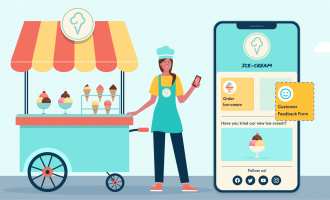






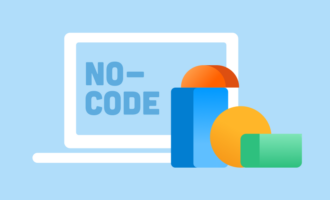

















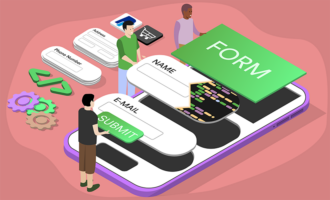


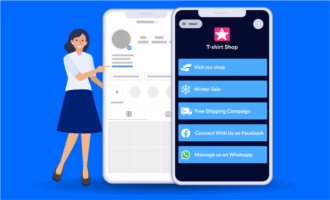




















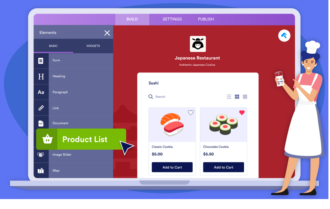



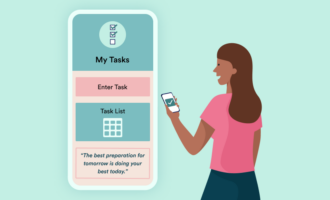




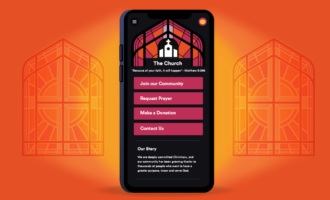










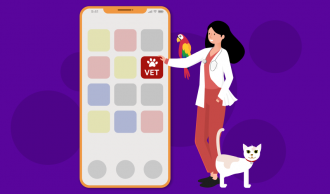





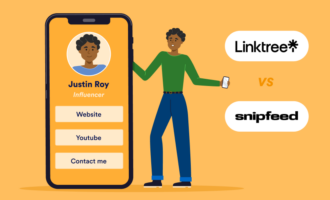







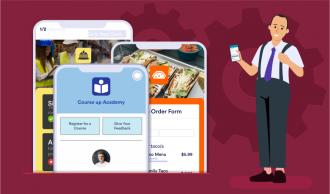




Send Comment: